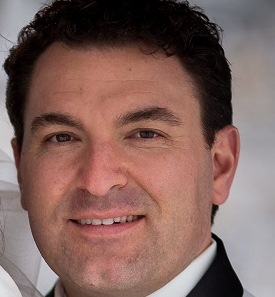How to Help Your High Schooler Set Goals
To your student, it might seem as if high school is going to last forever. But you know better. Setting goals provides teenagers with concrete landmarks to help them along their academic path. Having set goals to follow will give your student focus and help he or she build self-confidence.
Here’s a look at the kinds of goals your teenager should be setting and why they are important.

Of Course Those Courses Matter. How can you help make your teenager’s academic schedule beneficial to him or her? Keep your teen’s college and career goals in mind when choosing courses.
Think Ahead to Test Time. Tests are a fact of life for high school teenagers. Whether dealing with subject tests, mid-terms and finals, or standardized tests, your student’s high school career will be peppered with test dates. Well ahead of test time, help your student set up test preparation goals. If you think your child would benefit from extra help studying or preparing for tests, Sylvan Learning of Hamilton is here for your family! Our study skills and test prepprograms are perfect for giving your teenager an extra boost! Contact Sylvan Learning of Hamilton for more details.
Extracurriculars Are Not Extraneous. Both colleges and employers think extracurricular activities are important because they showcase skills, commitment and responsibility. In addition, these activities benefit your teen by helping to build independence, confidence and experience. Sometimes, they even help your teen figure out a career path. As your teenagers set goals for the things they would like to achieve outside of school, help them keep their overall schedule in mind, as well as their college plans.
You Talking to Me? Have your student talk to the school’s counselor. The counselor can help your student select courses and narrow down college and career choices. Setting up goals with the counselor provides a clear framework that helps them keep things in focus.
Hello College, Here We Come! No matter which year of high school your teenager is in, college visits should be on your goal list. Freshman year is not too soon to start looking at colleges. In fact, it’s much better to start early, and you can start locally. Visit different colleges of different sizes, with different kinds of campuses, if possible. Different campuses have different “feels” to them, and visiting will help your teen figure out which atmospheres are most appealing.
Face the Financial Facts. High school means study time for you too. Your goal during your teenager’s high school years should be to learn about college costs. That includes learning about financial aid: how it works, what’s available and if your family qualifies for it. It also includes learning about the differences between loans, grants and scholarships. The earlier you learn the ins and outs, the better, because it’ll give you the opportunity to plan ahead. Then, you can sit down with your teen and have a frank discussion about the fiscal facts. Based on that discussion, you can help your teen set realistic college goals.
The more your student sets and meets goals, the more he or she will realize the benefits and importance of goal setting.

Featured Blogger
Mark Kance

Mark B. Kance, M.A.T. is the Executive Director at the Hamilton Township Sylvan Learning in Hamilton New Jersey. Sylvan Learning is the leading provider of tutoring to students of all ages, grades and skill levels with more than 30 years of experience and nearly 800 centers located throughout North America. Sylvan's trained and Sylvan-certified instructors provide personalized instruction in reading, writing, mathematics, study skills and test-prep for college entrance and state exams. Sylvan also hosts MomMinded.com, a blog offering tips and resources from moms and education experts. For more information, call 1-800-31-SUCCESS or visit www.SylvanLearning.com.




























